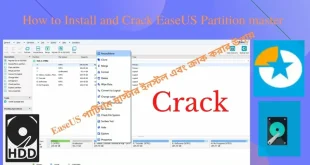Is your cryptocurrency website performing sub-optimally? Don’t fret. There are many ways to attract more crypto traffic. That said, drawing the “right” traffic is not always easy. You have to overcome many pain points, such as establishing trust in a project or optimizing your marketing spend in light of more expensive digital campaigns. Even building organic Crypto Website traffic has become quite competitive. Crypto enthusiasts are also more risk-averse and wary of big projects with massive campaigns.
Building trust is key, so today, we’re sharing ways to increase traffic predicated on building your reputation and establishing you as an authoritative figure in your niche.
☞ Define The Target Audience
Before running Google ads or writing guest posts, start by figuring out who your website is for.
Now, the target audience can be anyone from ordinary people interested in investing in crypto to experienced investors looking for fresh opportunities in the market.
It’s important not to make assumptions about the crypto audience when promoting crypto sites. Try to make fact-based decisions based on actual primary research.
- Look at your website analytics and see which countries your visitors are coming from.
- Survey users and ask them what their interests are.
- Use social media to see people following and engaging with similar projects like yours.
- Perform competitor research.
Knowing your target audience will allow you to design your marketing strategy accordingly.
▶ Choose GEOs For Promoting Your Crypto-Website
Selecting GEOs means targeting specific countries, states, cities, or postal codes.
Why target a specific GEO? You can attract the right visitors—and obtain the most economic value—from your marketing spend.
Choosing GEOs should be done carefully, considering the following factors:
- Economic potential and market size;
- Level of discretionary income;
- Cost of living and doing business;
- Cultural values and consumer preferences;
- Level of competition from other businesses in that country or region.
GEOs can be categorized as follows:
▶ First-Tier GEOs
Most marketers want to target these regions due to their larger markets, as they include first-world countries such as the US, UK, Canada, Australia, New Zealand, and Western Europe. They can be more expensive than other GEOs in terms of running targeted CPC (cost per click) ads or may have more advertising restrictions. Still, this is made up for by the higher conversion rate and better ROI (return on investment).
Don’t strictly focus on countries and regions. You can also target crypto-friendly cities, such as London, New York City, Singapore, Amsterdam, Madrid, Lagos, and Berlin. They have some of the highest concentrations of digital asset users and investors, promising more qualified leads.
▶ Second-Tier GEOs
These locations don’t get as much attention as the big players as they have mid-sized economies. Still, they have better access to digital payment systems and higher internet penetration than tier-3 countries.
With less competition and fewer regulations, there are more growth opportunities. Additionally, as people become more aware of cryptocurrencies, these markets can be a starting point for projects looking to break into big markets. Some notable countries here are Brazil, Japan, China, Colombia, and Argentina.
▶ Third-Tier GEOs
Another option you have is to target third-tier GEOs. They are less-populated or developing parts of the world, such as Eastern Europe, Africa, and Southeast Asia. The markets don’t get much attention due to their lower purchasing power. Still, they promise big opportunities as they have widespread internet access.
The key is knowing how to find the most promising tier-3 countries. You should fully research the local market before investing in any kind of advertising to discover the best way to market, for instance, by partnering with local influencers.
☞ Consider Traffic Sources
Website traffic can come from a myriad of sources that are either paid or free. But it’s important to pick and choose from each category when building your crypto marketing strategy.
➤ SEO
The importance of SEO for crypto projects can’t be understated, as it builds a lasting and dependable source of traffic. It involves optimizing your website so that search engines will prefer your pages and content to answer user search queries. This includes producing quality content, using keywords, writing meta descriptions, adding alt text to images, obtaining backlinks, and more.
Selecting pertinent keywords for your blog entries and web pages will be most important. Google Trends and other tools allow you to find what people are looking for and produce material around such subjects. The search volume of the terms should be reasonable yet their difficulty level should not be great.
SEO is much more than on-page SEO. You should also consider off-page SEO. These are things you do off your website to improve its ranking.
Getting help from SEO for cryptocurrency services is highly advised. Their experience will come in handy when analyzing your current position and building a strategy.
➤ Press Releases And Media Placements (Also Good For SEO)
Press releases and media placements help to increase the site’s credibility, authority, and visibility both with search engines and in the crypto space.
A press release is a written correspondence you send to news outlets or reporters hoping they would find the newsworthy events you conducted and produce a write-up.
Media mentions involve getting featured organically in other publications for something positive or negative you did. You can also generate media placements by reaching out to crypto websites and explaining what value readers may get from reading about or knowing about your project.
Both of these methods will help you attract more crypto traffic from referrals. They also can boost your SEO rankings as Google watches out for online mentions to gauge if the business is relevant or irrelevant in a certain industry.
➤ Context Ads, Banners, And Crypto Ad Networks
Large advertising networks like Google have placed strict restrictions on who can run crypto ads on their advertising network. As an alternative, ad networks focusing on the crypto space, such as Coinzilla, CoinTraffic, and CoinAdvertise, have emerged to fill the gap. They partner with publishers (third-party sites such as crypto blogs or apps) and offer various ad formats and placement options.
When choosing crypto advertising networks, ensure that they offer engaging ad placement options like native ads or pop-unders. Consider if they partnered with quality publishers, their main geographic regions, and their cost-per-click (CPC) rate.
➤ SMM
Social media marketing can generate high-quality traffic for your website efficiently and cost-effectively. You can draw potential users in with well-crafted posts that showcase your project. Or run ads that focus on getting people to visit your pages.
To maximize the effectiveness of your social media efforts, go with platforms that host the most crypto conversations. For instance, while Facebook has the most users, Twitter is the top platform for crypto-related conversations.
You must create helpful content on the platform that appeals to crypto users, such as tutorials, technical advice, news updates, and industry trends. Run giveaways or post about upcoming coin drops. Also, don’t forget about organic opportunities like sending direct messages or commenting on relevant posts—even those posted by other users.
➤ Email Marketing
Whether your marketing plan calls for a currency, a DEFI project, or an NFT, email marketing ought to be included. Given that over 4 billion email users globally and over 300 billion emails are sent daily, it has the widest audience among all the channels.
Create an opt-in form that can have its own landing page or show up in the footer part of your website to start building an email list. Offer users a motivation to sign up, for instance, by promising updates, exclusive drops, industry newsletters, etc.
After compiling a list of people to reach out to, it’s time to deliver value. Offer exclusive content, tips, and advice related to cryptocurrencies or even discounts on products or services that can help them get ahead in the crypto world.
Finally, track the success rate of your emails. See which ones are more successful than others, and tweak your campaigns accordingly.
➤ Influencer Marketing
Influencers are trusted people in the crypto space who have built up a following mostly by offering useful advice or entertaining content. Some have an active following, sometimes in the millions, and will quickly get the word out to people who trust them.
But, it’s not all about working with crypto influencers with large audiences, but people with a niche following related to your project. For instance, if you’re an NFT project, you may get better performance by working with an NFT influencer than someone focused on the Metaverse, GameFI, ICO, or Defi space.
Podcasts can also be effective. Podcasts about cryptocurrencies allow for discussions and arguments about new trends as well as interviews with creators of fresh initiatives. This is an excellent approach to get possible clients who might not come across your website otherwise.
➤ Directories And Aggregator Sites
Another effective strategy for attracting crypto traffic is getting listed on crypto directories and aggregator sites. The websites list projects, services, and resources related to cryptocurrencies. People often visit them searching for new opportunities, enabling you to tap into a highly engaged audience.
Some popular crypto directory websites include:
- Bitcoin Wiki
- Crypto Compare
- Crypto Altas
- Revain
- Crypto Totem
Focusing on directories with the most users and the greatest search volume will make your efforts more worthwhile. You should also think about getting featured in niche publications, for instance, the Web3 Fonducation or Web3 Labs Blog for Web 3.0 projects.
➲ Tips To Increase Conversion On Your Landing Pages
Your landing page is where users “land” after clicking on your links. You specify the pages in the URL you include in your ads or on your social media channels. The goal of the landing page is to get users to take some action. That’s what determines its performance.
Here are some recommendations to improve your landing pages:
- Localize and target your content: Localize your website and marketing materials, so they fit your specific audience. This entails using the right language, images, and currency.
- Understand the user’s steps: Understand how users navigate through your website and eliminate manual steps that delay conversations or create friction.
- Work on UX: Think of how users experience the website, and make it as user-friendly as possible, for instance, by having fast-loading and mobile-friendly pages.
- Make navigation simple and seamless: Users should be able to intuitively find their way around your site. Design your landing pages with a solid call to action.
- Include all necessary disclaimers and risk warnings: This enhances transparency as crypto assets are still considered highly risky, and it’s proper to state this clearly.
- Create interactive forms to find out what the users want: Consider using engaging forms to gather user responses and improve your products.
- Increase credibility through reviews, FAQs, or charts with data: Testimonials, performance data, and other forms of social proof like FAQs can help to increase conversion rates.
- Add live chat: Visitors can have all their questions answered in real time. This improves the chances of them converting them.
 Daily Blogger News Stay updated with the latest trends and insights. Your reliable source for daily updates and information.
Daily Blogger News Stay updated with the latest trends and insights. Your reliable source for daily updates and information.







